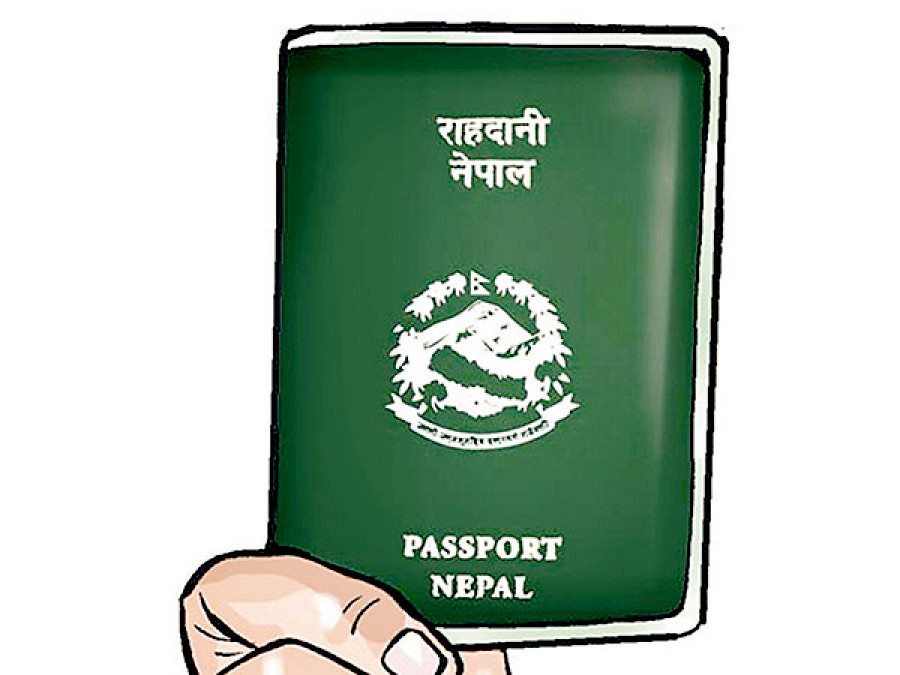National
Security printing press proposals from Germany and France were immature and incomplete, House committee concludes
Parliamentary Accounts Committee wants the government to either invite a fresh global bidding or revisit the proposals.
Anil Giri
The Parliamentary Accounts Committee has concluded that the proposals forwarded to set up a security printing press by German and French firms are immature and incomplete.
The committee is planning to instruct the Ministry of Communication and Information Technology to either go for a fresh global bidding process or revisit the proposals before holding final negotiations with the two firms.
The House panel has already held one round of discussion earlier this month and sought all documents and communications made between the Ministry of Communication and Information Technology and German and French firms since the negotiations of security printing press began with German first and later with French governments.
The House committee’s conclusion, with the stock of passports and excise duty stickers depleting fast, means the Ministry of Foreign Affairs and the Ministry of Finance will have to take independent calls on printing passports and excise duty stickers.
The Parliamentary Accounts Committee is going to hold a meeting with Communication and Information Secretary Deepak Subedi and Executive Director of the Department of Security Printing Press Bikal Poudel very soon, officials at the House committee told the Post.
The security printing project had landed in controversy since the government decided to procure the facility on a soft loan from France under a government-to-government deal last year. But the government later accepted a proposal from Germany.
A complaint was registered at the House committee, alleging that both proposals had quoted high interest rates on soft loan offers which the country could not afford.
“We have concluded that both proposals are not mature and they need to be revisited," said Rojnath Pandey, secretary at the House committee. “We have doubts over machines, capacity, pricing and capability of the firms.”
The German and French firms have offered soft loans of 185 and 175 million euros, respectively, to the government of Nepal to set up a security printing press that will be able to print all sensitive documents like passports and official stickers, but not currency notes. Printing notes requires a high-end facility in a bullet-proof housing, which will only add to the cost.
If the House committee hands over the decision to cancel the further negotiations process with French and German firms or revisit them, the government will have a narrow window for supply for passports and excise duty sticker.
“We went through both proposals. The entire evaluation process was wrong. It didn’t follow the competitive bidding process, which should be open for all. When the Cabinet opted for the second option of government to government deal, it killed the basic component of fair competitiveness. And we have noticed that one proposal was twisted later, which was a grave mistake on the side of the ministry,” said Pandey.
Earlier, the government had cancelled global bidding for the passport printing, saying that it will be printed and supplied after installation of security printing facilities.
While the Parliamentary Accounts Committee and the Finance Committee, another House panel studying the proposals, are yet to formally communicate their decisions to the government, a meeting of government secretaries have already agreed to take an independent call on printing passports and excise duty stickers.
The meeting last week decided that since security printing project is getting delayed with a lot of uncertainties, the ministries of foreign affairs and finance were to be urged to take an independent call and manage their requirements, Communication and Information Secretary Subedi told the Post.
“Since the proposal to set up a security printing facility is under discussion at two House panels, we have already agreed to resolve the anticipated crisis of passports and excise duty sticker,” said Subedi.
A senior official at the Ministry of Foreign Affairs said the ministry has three options. The first one is holding negotiations with the French firm, IN Groupe, by going against the Public Procurement Act, because there has been a government to government deal.
The second option, the official said, is negotiating with both German and French firms and striking a deal with the one that is ready to provide the service at a competitive price.
The third option is once again inviting global bids, a process that the government abruptly cancelled on November 8 last year.
The Department of Passports currently has a stock of around 47,000 ordinary passports and a few hundred official passports. The numbers of diplomatic passports can sustain for another one year.
Oberthur Technologies, the French company that has been providing machine-readable passports since 2010, has completed the supplies of over 2 million passports. An official at Oberthur Technologies had earlier told the Post that it won’t be easy to continue with the present contract due to technological constraints and the small timeframe.
If the government does not act quickly, there could soon be a passport crisis in the country.




 9.7°C Kathmandu
9.7°C Kathmandu














